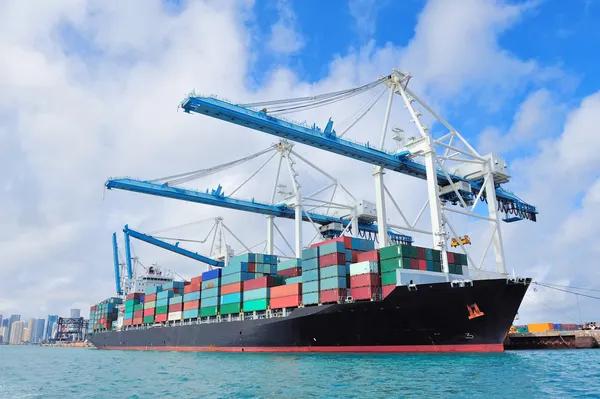Introduction
The freight forwarding industry has undergone a significant transformation with the introduction of container shipping. This method enables the efficient transportation of goods by sea, rail, and road, offering a much easier process compared to the past. The utilisation of containers has resulted in improved efficiency and economies of scale.
The experts at Immediate Transport can provide an extensive guide to help your business understand the requirements for container shipping.
Container Sizes and Types
Container sizes play a crucial role in facilitating efficient freight forwarding. The most commonly used container sizes are 10ft, 20ft, and 40ft, with standard dimensions of 8ft in width and 8ft 6″ in height. Additionally, high cube containers offer extra vertical space, providing greater flexibility for cargo with a height of 8ft 6″.
To cater to diverse transportation needs, several types of shipping containers have emerged:
- Refrigerated containers: Specially designed to transport perishable goods such as food and pharmaceuticals, ensuring optimal temperature control.
- Flat rack containers: Featuring collapsible sides, these containers are ideal for shipping boats, equipment, and cars, offering convenience and versatility.
- Open side containers: Equipped with fully openable side doors, these containers enable wider loading of materials, simplifying the logistics process.
- Open-top containers: Roofless containers designed to accommodate goods of any height, making them suitable for oversized or irregularly shaped cargo.
- Dry storage containers: Standard containers used for shipping dry materials, specifically serving as the go-to option for a wide range of goods.
- Tank containers: Tailored specifically for transporting liquid cargoes such as fuels, ensuring secure containment and safe transportation.
Container Packing Options
Two primary container packing options are available: Full Container Load (FCL) and Less-Than-Container Load (LCL), each catering to different shipment sizes and requirements.
Full Container Load (FCL) involves reserving and paying for an entire container, dedicating all available space to your shipment. FCL offers flexibility and frequent sailings, making it ideal for transporting large quantities of goods. By solely utilising the container for your shipment, the risk of damage is minimised.
Less-Than-Container Load (LCL), on the other hand, suits businesses importing smaller quantities of goods that do not require a full container’s capacity. In LCL shipping, your supplier’s goods are consolidated with others to form a complete shipment, therefore optimising container space and reducing costs.
Cost Considerations and Transit Modes
The cost of container shipping is influenced by several factors, including origin and destination locations, pricing rates of the chosen freight forwarder, and the nature of the cargo being transported. The selected mode of transit, such as sea, road, or rail freight, also impacts the overall cost and delivery timeline.
Sea freight stands out as the most cost-effective choice, although it generally entails longer transit times. Alternatively, Road freight offers door-to-door delivery and is ideal for time-sensitive shipments requiring prompt transportation. Rail freight strikes a balance between speed and cost, representing the most environmentally friendly option.
The Decision-Making Process
When deciding between FCL and LCL shipping, it is crucial to consider your specific requirements, shipment size, and budget. While LCL may incur a higher unit cost per kilogram, the total delivery cost tends to be lower, making it a favourable option for smaller shipments.
Conclusion
Container shipping has revolutionised the freight forwarding industry, streamlining processes and delivering increased efficiency and scalability. By understanding container sizes, types, packing options, and cost considerations, businesses can leverage this transformative shipping solution to optimise their International Transportation operations. Immediate Transport offers an extensive guide, empowering businesses to navigate the ever-evolving landscape of freight forwarding.
Call our team today to find for more information – 01753 653777


